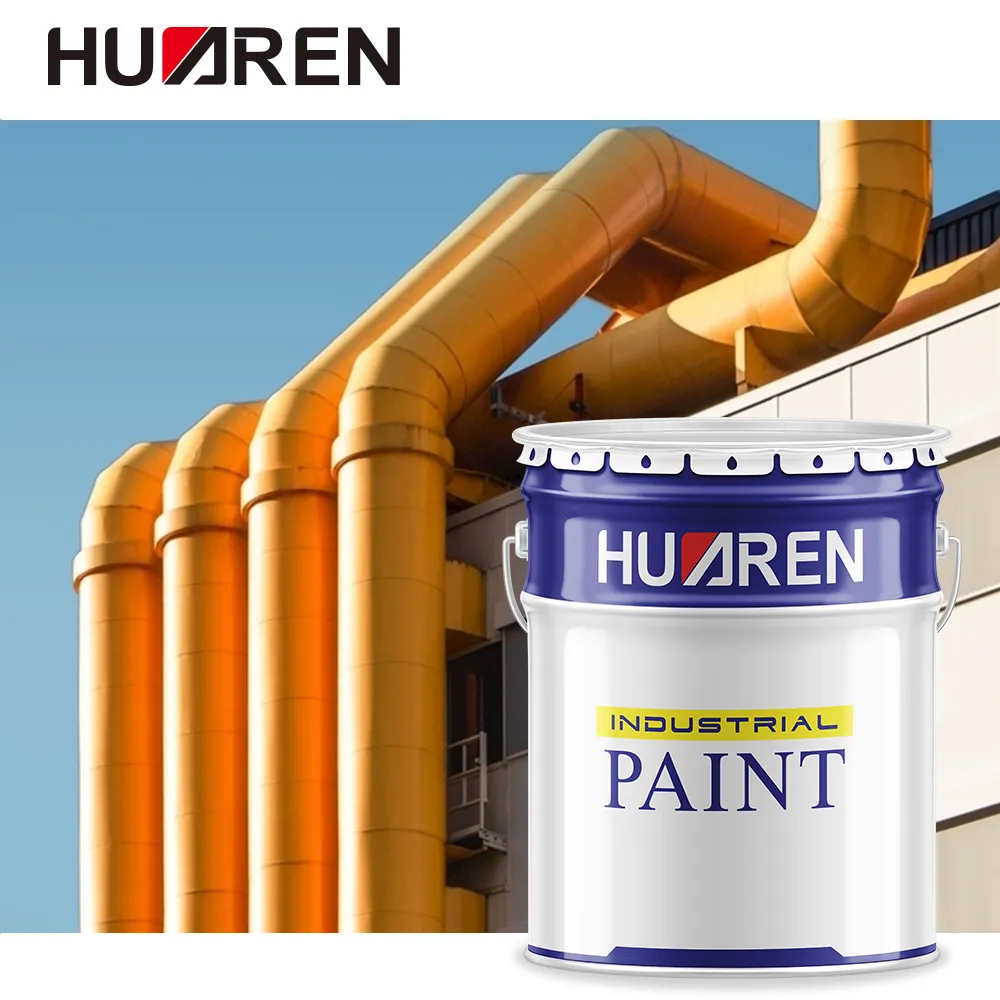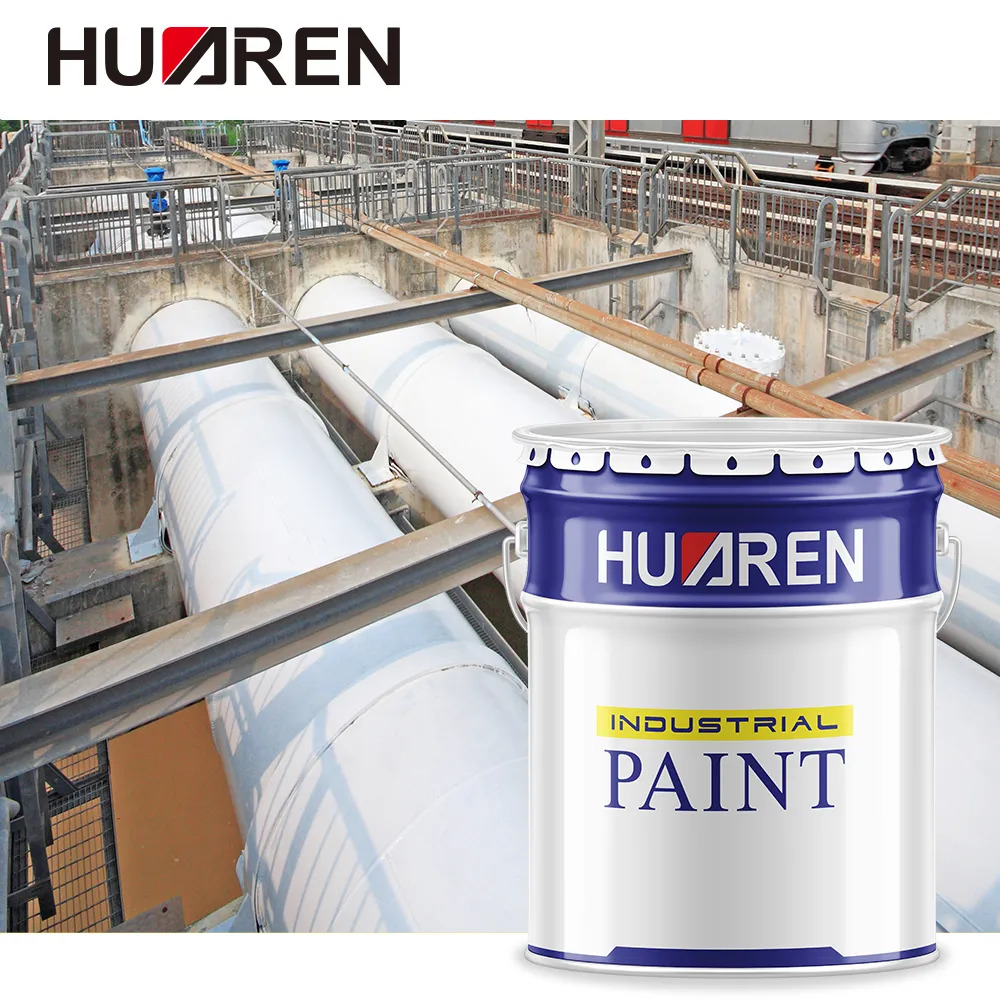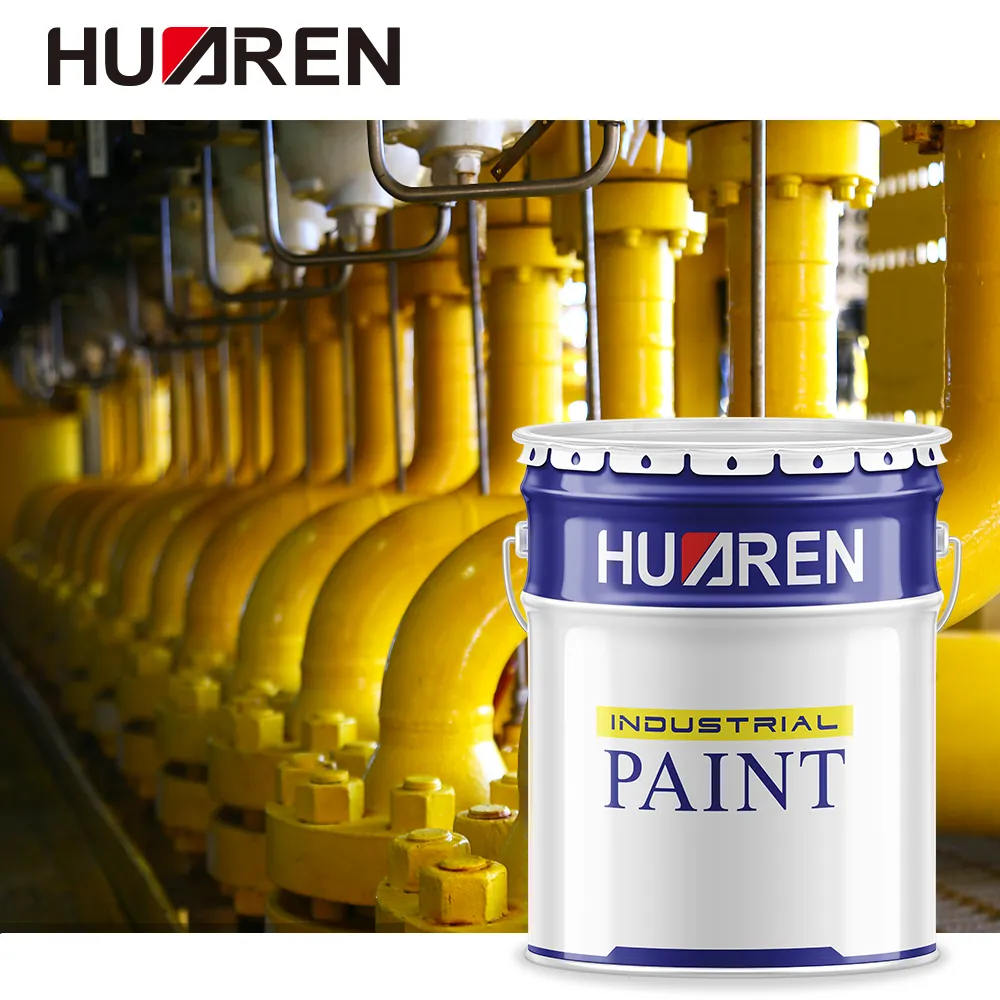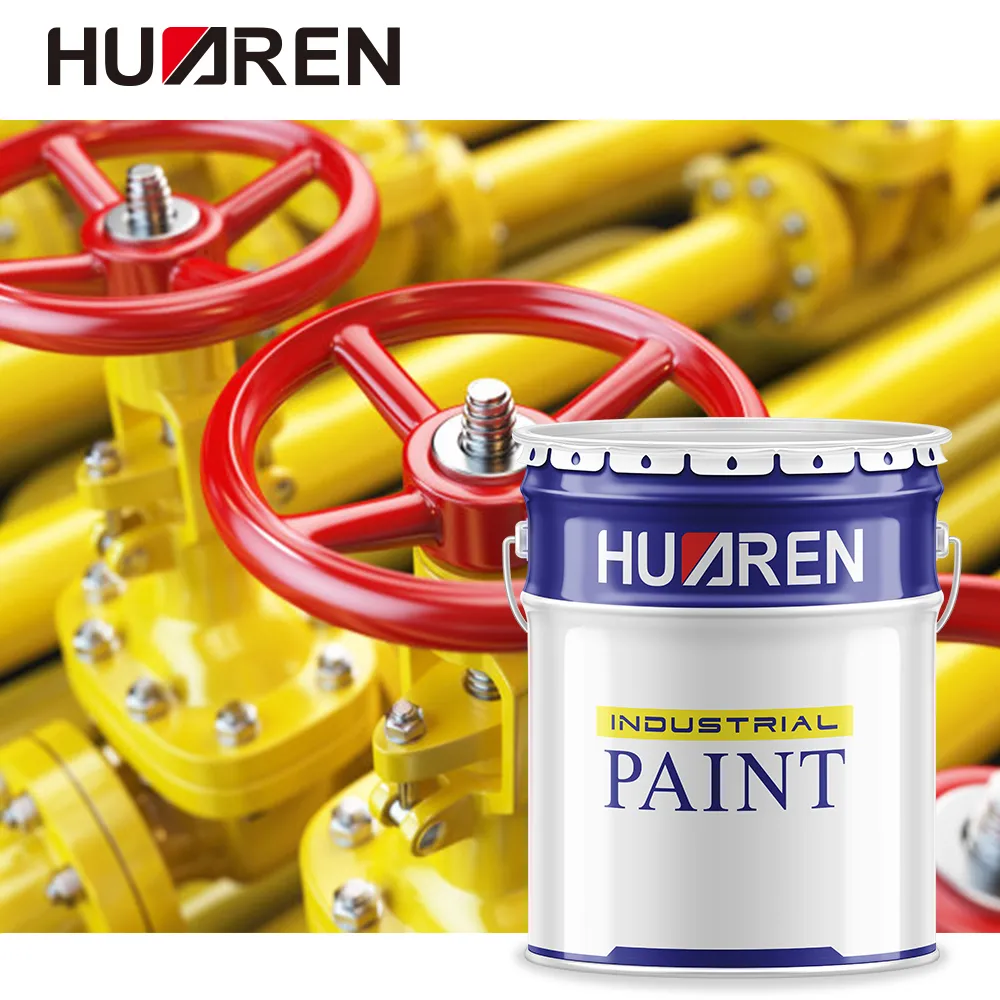Anti-corrosion coating is a type of coating specially used to protect the surface of materials from corrosion. It is mainly used for the protection of materials such as metals, concrete, and wood. Corrosion refers to the phenomenon that the material reacts chemically or electrochemically with its surrounding environment, resulting in the degradation or even damage of the material performance, especially in corrosive environments such as the ocean, industry, or chemical industry. The corrosion rate of the material will be accelerated. The main function of anti-corrosion coating is to form a protective film on the surface of the material to isolate corrosive substances such as air, moisture, and chemicals, thereby extending the service life of the material and reducing the frequency of maintenance and replacement.

How does anti-corrosion coating work?
There are three main protective mechanisms of anti-corrosion coating:
1. Shielding effect: Anti-corrosion coating prevents corrosive substances (such as oxygen, water, salt, etc.) from contacting the material by forming a dense protective film on the surface of the material, blocking the necessary conditions for corrosion to occur. This kind of coating usually has excellent anti-penetration properties and can effectively prevent moisture and gas from entering the material.
2. Cathodic protection: Some anti-corrosion coatings contain metal powders (such as zinc powder), which can act as sacrificial anodes and are preferentially oxidized during electrochemical corrosion to protect the substrate from corrosion. This type of coating is usually used to protect metal materials such as steel to prevent rust.
3. Passivation: Some anti-corrosion coatings contain passivators, which can form a chemically inert film on the metal surface, thereby reducing the reaction with oxygen, moisture or chemicals in the environment and reducing the corrosion rate.
Anti-corrosion coatings have many types according to their usage scenarios and protection mechanisms. Choosing a suitable anti-corrosion coating requires comprehensive consideration of factors such as material type, working environment, and service life.

What are the classifications of anti-corrosion coatings?
According to different substrates, anti-corrosion mechanisms and application scenarios, anti-corrosion coatings can be roughly divided into the following categories:
Epoxy anti-corrosion coatings
Epoxy anti-corrosion coatings are anti-corrosion coatings made of epoxy resin as the main film-forming substance, with excellent mechanical properties, adhesion and chemical stability. It has excellent chemical corrosion resistance, especially in corrosive environments such as acids, alkalis, salts and organic solvents. Epoxy anti-corrosion coatings are suitable for the protection of steel structures, chemical equipment, ships, pipelines, oil tanks, etc.
● Advantages: The paint film of epoxy coatings is hard, wear-resistant, has good adhesion and chemical resistance, and has good water resistance and oil resistance.
● Disadvantages: Poor weather resistance, easy to powder under sunlight, not suitable for long-term exposure to the outdoors.
Polyurethane anti-corrosion coatings
Polyurethane anti-corrosion coatings are based on polyurethane resin and have excellent wear resistance, chemical resistance and weather resistance. It can not only resist ultraviolet radiation, but also resist the erosion of chemicals and water, so it is widely used in various buildings, bridges, ships and automobile industries.
● Advantages: Excellent weather resistance and chemical resistance, high gloss of the paint film, good wear resistance, suitable for outdoor use.
● Disadvantages: The construction process requirements of polyurethane coatings are high, and the construction environment requirements are also relatively harsh.
Fluorocarbon anti-corrosion coatings
Fluorocarbon anti-corrosion coatings are a high-performance anti-corrosion coating with fluorocarbon resin as the main component, which has extremely strong weather resistance, UV resistance, corrosion resistance and aging resistance. Due to its stable molecular structure, fluorocarbon coatings can maintain long-term protective effects in harsh environments and are widely used in bridges, tunnels, offshore facilities and high-rise buildings.
● Advantages: Fluorocarbon coatings have excellent weather resistance and can maintain long-term performance in environments such as sunlight, wind and rain, and chemical corrosion, and have a long life.
● Disadvantages: High cost, complex construction process, and usually require professional brushing.
Zinc powder coating (cold galvanizing coating)
Zinc powder coating is an anti-corrosion coating containing a large amount of zinc powder. It uses the sacrificial anode effect of zinc to form a zinc layer on the metal surface to protect the substrate from corrosion. This coating is suitable for the protection of metal surfaces such as steel structures, bridges, and marine facilities.
● Advantages: The cathodic protection of zinc powder coatings effectively prevents the corrosion of metal substrates, has excellent protective effects, and is suitable for use in harsh corrosive environments.
● Disadvantages: Zinc powder coatings are prone to rough and uneven surfaces, and usually require subsequent polishing and repair.
Alkyd anticorrosive coating
Alkyd anticorrosive coating uses alkyd resin as the main component, has good adhesion and wear resistance, and is usually used for metal or wood protection in mildly corrosive environments. The anticorrosion performance of alkyd coating is general, but the price is relatively cheap, and it is suitable for surface protection of general building structures and mechanical equipment.
● Advantages: low price, bright paint film, suitable for protection in general environment.
● Disadvantages: weak chemical corrosion resistance and weather resistance, relatively short service life.

What are the application scenarios of anticorrosive coatings?
The application field of anticorrosive coatings is very wide, and almost all materials exposed to air, moisture, chemicals or other corrosive media need to be anticorrosive coated. The following are some of the main application scenarios:
1. Marine environment: In the marine environment, the air contains a lot of salt and water vapor, and metal materials are prone to electrochemical corrosion. Therefore, ships, offshore platforms, dock facilities, etc. need to be protected with anticorrosive coatings with excellent salt spray resistance.
2. Industrial equipment: In heavy industries such as chemical, petroleum, and metallurgy, equipment is often exposed to harsh environments such as acid, alkali, salt, and high temperature. The corrosion rate of the equipment surface is relatively fast. Anti-corrosion coatings can effectively extend the service life of the equipment and reduce the maintenance cost of the equipment.
3. Bridges and buildings: Bridges, tunnels, and high-rise buildings are prone to rust and aging due to long-term exposure to wind and rain. In particular, steel structures need to be coated with anti-corrosion coatings to ensure the safety and durability of the structure.
4. Automobiles and mechanical equipment: Anti-corrosion coatings are usually required on the surface of automobiles and other mechanical equipment, especially in humid or industrial environments. Anti-corrosion coatings can effectively extend the service life of mechanical equipment and reduce the frequency of maintenance.
5. Pipelines and storage tanks: The surfaces of pipelines and storage tanks for oil, natural gas, and chemicals also need to be treated with anti-corrosion to prevent corrosion and perforation of materials when they are in contact with corrosive media for a long time.

How to choose the best anti-corrosion coating?
When choosing the best anti-corrosion coating, the following factors must be considered comprehensively:
Environmental conditions
Choose suitable anti-corrosion coatings according to the environment in which the coating object is located. For example, epoxy anti-corrosion coatings with good salt spray resistance are needed in marine environments, while polyurethane coatings or fluorocarbon coatings with strong weather resistance can be selected for outdoor bridge structures.
Substrate type
Different substrates require different anti-corrosion coatings. For example, zinc powder coatings or epoxy coatings are suitable for metal substrates, while polyurethane or acrylic coatings can be selected for concrete surfaces.
Construction conditions
The construction process and requirements of anti-corrosion coatings also need to be considered. Some high-performance anti-corrosion coatings (such as fluorocarbon coatings) have high requirements for the construction environment and painting process, and usually require professional personnel to operate.
Service life and maintenance cost
The best anti-corrosion coatings need to have not only excellent protective properties, but also a long service life and low maintenance costs. For example, fluorocarbon coatings can have a service life of more than 20 years, but their initial cost is high, while alkyd coatings are cheap but have a short service life.

